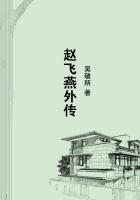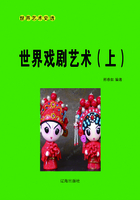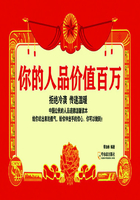In England, which, in consequence of its geographical position, is essentially a commercial country, the use of moneybecame common earlier than elsewhere. Thus, in the thirteenth century, we find in the registers of property belonging tochurches and monasteries, that payments in labour were commuted for money rents. So the lease gradually replaced the corvée ; and, at the same time, the lord had agricultural labour carried out on his demesne land by hired labourers.
After the great plague, which carried off considerable numbers of men, wages rose to such a point, that a special law, the Statute of Labourers , was passed, fixing the wages at two pence per day in winter, and three pence in summer; andcompelling the labourer to work at this rate under pain of imprisonment. The lord of the manor, having to pay these highwages, did not find it so profitable to cultivate his land himself as to let it. This is why we find, that in the sixteenth centuryservile tenancies had almost entirely disappeared.
The position of the cultivators, in a juridical point of view, was at the same time improved. The villani , instead of beingliable to the corvée at the lord's caprice, became what the law of the time styles "tenants by copy of the court roll," and, inlater times, "copyholders." As the courts of justice decided, in the time of Edward IV, that copyholders could not be evicted,so long as they fulfilled the obligations prescribed by custom, such tenants acquired a permanent possession, and came totake a place by the side of the socmen and yeomen already enfranchised. The fixed money rent, which they had to pay, soonbecame less burdensome in consequence of the depreciation of the coinage.
Thus, towards the end of the middle ages, when serfage elsewhere was becoming more burdensome, there was formed, inEngland, a numerous class of proprietor cultivators, living in comfort, and independence, and comprising an infinite series ofdegrees, from the squire, who was scarcely distinguishable from the noble, to the cottier, or rustic labourer, who likewisehad his house and field. It was this yeomanry, which made the power of England, and conquered the French Chivalry in thewars of a century. Hallam says, it is the proud independence of this noble stock of free socage tenants that has given somarked a stamp to the national character, and established so much ******* in our constitution. A chronicler, whoseevidence Mr Cliffe Leslie adduces, uses the following terms to describe the position of yeomen possessing property at arental of ? sterling in the money of the period. "These commonly live wealthily, keep good houses, and travail to get riches.
They are also for the most part farmers to gentlemen, or at the least artificers, and do come to great wealth, insomuch thatmany of them are able and do buy the lands of unthrifty gentlemen, and often setting of their sons to the schools, to theuniversities and to the inns of court, or otherwise leaving them sufficient lands whereby they may live without labour, domake them by those means to become gentlemen. These were they that in times past made all France afraid."Thus, in Saxon times, the island was peopled by free men, proprietors and warriors, regulating their own interests andadministering justice.. After the Norman conquest, feudalism reduced the greater number to slavery or to a state of greatdependence; but gradually they get their payments in labour or kind rigidly defined; commute them for pecuniary rents, notsubject to increase, and so regain a sort of property.
To-day, strange as it appears, there hardly remain any of these independent proprietors,of the yeomen who fought sovaliantly for the greatness of their country abroad, and for her liberties at home. At the end of the seventeenth century,though much reduced in number, there were still 160,000, forming with their families one-seventh of the, population. A fewwere mid to exist a short time back in the lake district; and Mr Fawcett, in his book On the British Labourer , tells us heknows of localities where, a century ago, they existed by hundreds. At the present day, the noble and powerful class ofyeomen seems extinct: large property has absorbed its last representatives. It is a repetition of the history of Roman latifundia . In Longfellow's poem, Hiawatha, embarked on his vessel, disappears in the rays of the setting sun, and passesaway to the regions whence there is no return; it is a picture of the red man becoming extinct at the approach of the white.
But the yeomen were of pure Anglo-Saxon blood. They were owners of the soil; possessed of competence; they hadsurvived the conquest, and been emancipated from the yoke of feudalism. Why did they disappear at the very time when thepower and wealth of England were increasing? And how comes it that the rural bourgeoisie, which everywhere elseincreased in numbers and influence, ceases to exist in the one country where modern liberty and civilization were firstestablished?
Several causes have been favourable to this great revolution which passed unnoticed; although its result, as Mr Morierremarks, has been to make England the only civilized nation, where property in land has been entirely taken from the handsof those who cultivate it. Mr Cliffe Leslie enumerates the more important of these causes with great precision. According tohim they are these:
(1) Confiscation of their ancient rights of common, which were not only in themselves of great value, but most important forthe help they gave towards the maintenance of their separate lands.
(2) Confiscation to a large extent of their separate lands themselves, by a long course of violence, fraud, and chicane, inaddition to forfeitures resulting from deprivation of their rights of common.
(3) The destruction of country towns and villages, and the loss, in consequence, of local markets for the produce of peasantfarms and gardens.















